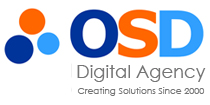
New website coming soon
For Accounts Support please email billing@osd.ie
For Digital Marketing Support please email digital@osd.ie
For Sales & Development Support please email info@osd.ie
For Technical Support please email technical@osd.ie
Telephone: 071 91 70024
OSD Digital Agency
OSD Building
31 Stephen Street
Sligo
Ireland
F91 YRW6